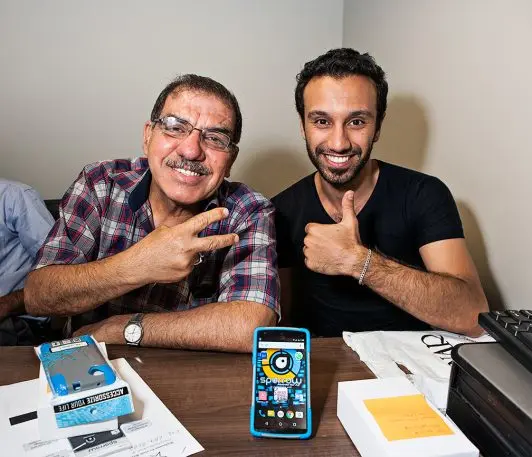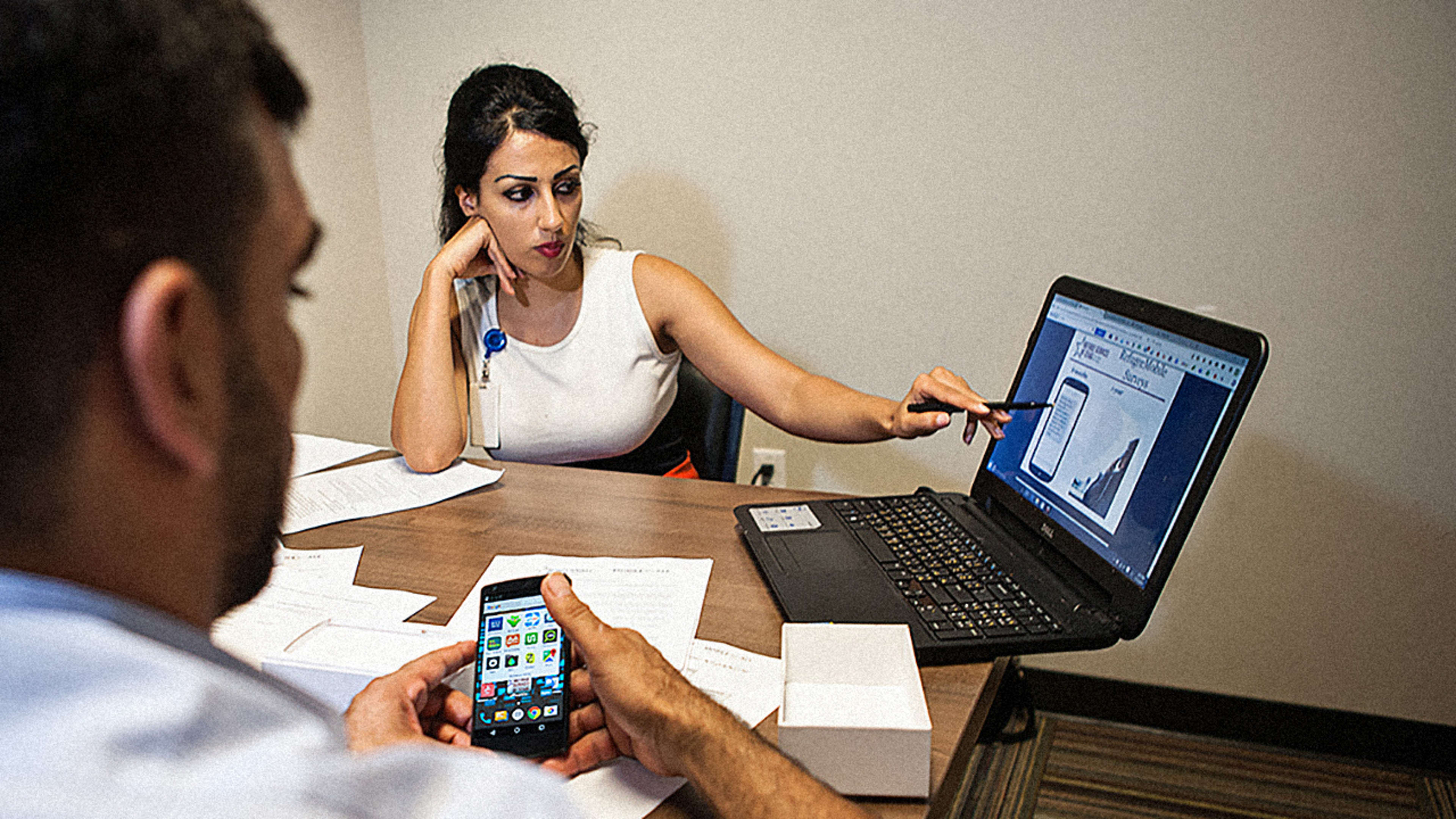When refugees arrive in the U.S., they don’t necessarily bring a phone (or one that works locally), and it isn’t on the list of basic supplies that resettlement agencies usually provide. The small, temporary stipend that refugees get goes to essentials like rent, and paying a phone bill can be a stretch. But two years ago, an agency in Texas decided to take part in an experiment: If you gave a refugee a phone with a curated set of apps preloaded on the home screen–from Google Translate and Duolingo to local transit and map apps–how much could it help smooth their transition?
A new study has the results from the 18-month pilot. Refugees in Austin, Houston, Dallas, and Fort Worth who were randomly selected to get a smartphone were 45% more likely than their peers to interact with someone from a different culture. They were 38% more likely to visit their child’s teacher at school, and 28% more likely to have internet at home. After the pilot, 9% said that they could speak in English “very well,” while none of their peers in the control group could say the same. There were signs that they were more likely to have a job and have a better-paying job, although those results weren’t statistically significant.
“It was a very purposeful set of apps that we put on the phone for somebody who would be coming from a war-torn situation, arriving in a town where they don’t know anybody,” says Matthew Bauer, cofounder and CEO of Sparrow Mobile, a social impact mobile that uses a buy-one-give-one model to offer phones and service to those living in digital poverty, and that provided the phones for the program, called RefugeeMobile. “Essentially, here’s mobile, here’s your connection, within days of arrival. Does that essentially speed their integration into the community, does that help them live a better life faster? The findings of the study were yes.”
The phones also helped overworked case managers at the resettlement agencies; after some training on the apps, the refugees were often able to answer questions for themselves that they might have asked a case manager in the past. “Case managers are dealing with people who may be in crisis,” says Rachel Factor, a data specialist at Refugee Services of Texas, the agency that piloted the program. “A lot of refugees may be working through trauma. Just having the time to really focus on client needs and get them to the resources that they need is really crucial.” If a refugee got mail, for example, they could use an app to translate it rather than bringing the letter to a case manager. If they did need to talk to a case manager, they could call or text instead of going to the resettlement office.

“One of the views of the refugee resettlement program is that we’re here to help, but we also want to make sure that we’re teaching the refugees and guiding the refugees to self-sufficiency, meaning that they can empower themselves to search for the information that they need,” Factor says.
Munel, a refugee who fled Iraq via Turkey and arrived in Austin in 2016, says that he used the phone most to navigate his new home city and track finances. He also used it to call friends, family, and, within a few months, his supervisor at his new job. The phone, unsurprisingly, was “really useful,” he says.
The study, a randomized controlled trial run by researchers from the University of Notre Dame’s Wilson Sheehan Lab for Economic Opportunities, came to the same conclusion. Now, with a grant from Vodafone Americas Foundation, Sparrow is creating a scalable platform that can be used by agencies across the country, and easily customized with location-specific apps for services like transit and banking.
The cost of providing phones and phone service for all newly arrived refugees would be relatively small, Bauer says. “The costs of providing each year at that high level are fairly low by comparison of what you get in savings, by connecting with their caseworker, integrating faster into the communities. And then when they’re up on their feet, they start paying for it themselves.”
Recognize your brand's excellence by applying to this year's Brands That Matters Awards before the early-rate deadline, May 3.
